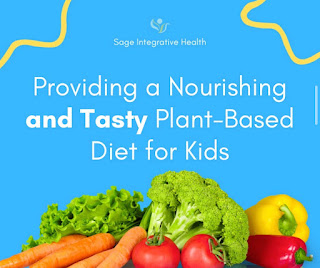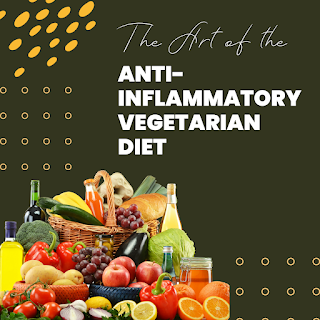Sage Health Living Blog

Cortisol, often referred to as the "stress hormone," plays a vital role in our body's response to stress. Produced by the adrenal glands, cortisol influences various functions, from regulating metabolism to controlling the sleep-wake cycle. While cortisol is crucial for survival, chronic stress can lead to an overproduction of this hormone, resulting in a range of health issues.
What is Cortisol?
Cortisol is part of the body's fight-or-flight response, helping us react to immediate threats. It increases blood sugar, sharpens focus, and alters immune system responses. However, prolonged exposure to stressors, be they physical, emotional, or environmental, can lead to sustained elevated cortisol levels, impacting overall well-being.
How Cortisol Affects Us:
1. Metabolism: Chronic stress can disrupt normal metabolic functions, contributing to weight gain, especially around the abdominal area.
2. Immune System: Prolonged cortisol elevation suppresses the immune system, making us more susceptible to infections.
3. Sleep: Cortisol follows a circadian rhythm, with levels peaking in the early morning to wake us up. Elevated evening cortisol can disturb sleep patterns.
Balancing Cortisol Naturally:
1. Regular Exercise: Physical activity is a powerful stress buster. It not only reduces cortisol levels but also releases endorphins, promoting a sense of well-being. Aim for a mix of aerobic and strength training exercises.
2. Adequate Sleep: Establish a consistent sleep routine, aiming for 7-9 hours per night. Quality sleep helps regulate cortisol levels and supports overall health.
3. Mindfulness and Meditation: Practices like mindfulness and meditation have proven effective in reducing stress and normalizing cortisol levels. Incorporate short sessions into your daily routine.
4. Balanced Nutrition: Maintain a diet rich in whole foods, emphasizing fruits, vegetables, and lean proteins. Avoid excessive caffeine and refined sugars, as they can contribute to cortisol spikes.
5. Social Connections: Cultivate strong social bonds. Positive interactions and emotional support can buffer the impact of stress on cortisol levels.
6. Limit Stimulants: Reduce your intake of stimulants like caffeine and nicotine, especially in the evening. These can exacerbate cortisol-related sleep disturbances.
7. Hobbies and Relaxation: Engage in activities you enjoy regularly. Whether it's reading, gardening, or listening to music, these hobbies can counteract the effects of chronic stress.
Understanding cortisol and its effects empowers us to make lifestyle choices that promote balance. By incorporating these natural strategies into our daily lives, we can mitigate the negative impact of chronic stress, fostering both physical and mental well-being. For more tips on how to naturally lead a stress-free life, schedule a consultation with us at SageIntegrativeHealth.com!

As winter unfolds its chilly embrace, maintaining good blood circulation is key to staying warm and healthy. Let's explore some plant-based foods and lifestyle choices that contribute to improved circulation during the colder months:
1. Leafy Greens
Dive into a vibrant array of leafy greens such as spinach, kale, and collard greens. Rich in iron, folate, and vitamins, these vegetables play a pivotal role in supporting healthy blood flow and maintaining optimal oxygen levels in the body.
2. Beets
Harness the power of beets, renowned for their nitrate content. Nitrates help dilate blood vessels, facilitating smoother blood flow. Whether roasted, blended into a smoothie, or tossed into salads, beets are a versatile addition to your winter diet.
3. Cinnamon
Embrace the sweet warmth of cinnamon, not just for its flavor but for its potential to improve blood circulation. Sprinkle it onto your morning oatmeal or include it in your favorite hot beverages to reap its benefits.
4. Turmeric:
Turn to turmeric for its anti-inflammatory properties, thanks to curcumin. This spice can positively impact blood circulation and contribute to overall cardiovascular health. Incorporate it into soups, stews, or golden milk for a comforting and healthful winter treat.
5. Omega-3 Rich Seeds
Include flaxseeds, chia seeds, and hemp seeds in your meals. Packed with omega-3 fatty acids, these seeds support cardiovascular health and contribute to improved blood circulation. Add them to smoothies, yogurt, or sprinkle on salads.
6. Hydration with Herbal Teas
Hydration is crucial for maintaining efficient blood flow. Warm up with herbal teas like ginger or chamomile. Their soothing warmth not only keeps you hydrated but also aids in promoting overall well-being.
7. Regular Exercise
Engage in regular physical activity to promote circulation. Indoor exercises, yoga, or brisk walks are excellent choices. These activities not only keep you warm but also contribute to a healthier, more active lifestyle.
For further insights and recipe ideas, reputable sources like NutritionFacts.org and VegetarianTimes.com offer valuable information on plant-based living and its impact on overall health.
Embrace the nourishing power of vegetarian choices to keep your blood flowing and your body warm throughout the winter months.

Ashwagandha, scientifically known as Withania somnifera, is a powerful and revered herb in traditional Ayurvedic medicine. Often referred to as the "Indian ginseng," ashwagandha has gained widespread recognition for its numerous health benefits. In this blog post, we'll delve into the remarkable advantages of this adaptogenic herb.
Stress Reduction and Anxiety Management
One of the most well-known benefits of ashwagandha is its ability to reduce stress and anxiety. It helps regulate cortisol, the stress hormone, leading to a calmer and more relaxed state of mind. Studies have shown that ashwagandha can significantly reduce anxiety symptoms, making it a valuable natural remedy for those dealing with stress-related disorders.
Improved Cognitive Function
Ashwagandha is known to enhance cognitive function and memory. It has neuroprotective properties that help shield the brain from oxidative stress and support the growth of nerve cells. Regular consumption may boost alertness, concentration, and overall cognitive performance.
Better Sleep Quality
For individuals struggling with sleep disorders or insomnia, ashwagandha can be a game-changer. Its calming effect on the nervous system promotes restful sleep and may help those with sleep disturbances enjoy more peaceful nights.
Enhanced Immune Function
Ashwagandha is also recognized for its immune-boosting properties. It can increase the production of white blood cells, which play a crucial role in defending the body against infections. A stronger immune system means better protection against illnesses.
Hormone Balance
For both men and women, ashwagandha may aid in hormone regulation. It can help balance testosterone and estrogen levels, which can be particularly beneficial for improving fertility and sexual health.
Anti-Inflammatory Effects
Chronic inflammation is linked to various health issues, including heart disease and cancer. Ashwagandha contains potent anti-inflammatory compounds that may help reduce inflammation in the body, potentially lowering the risk of chronic diseases.
Energy and Vitality
Many people report increased energy and vitality when taking ashwagandha regularly. It is believed to improve mitochondrial function, which is responsible for producing energy within our cells. This boost in energy can help combat fatigue and improve overall stamina.
Mood Regulation
Ashwagandha's adaptogenic properties can help stabilize mood swings and alleviate symptoms of depression. It promotes the production of neurotransmitters like serotonin, which play a crucial role in maintaining a balanced mood.
Incorporating ashwagandha into your daily routine, whether through supplements or as a powdered herb, can offer a wide range of health benefits. However, it's essential to consult with a healthcare professional before adding any new supplement to your regimen, especially if you have underlying health conditions or are taking medications. With its centuries-old reputation and a growing body of scientific research, ashwagandha is indeed a remarkable herb that deserves a place in your holistic wellness journey.
References:
Health Benefits of Ashwagandha, Based on Research Healthline https://www.healthline.com/nutrition/ashwagandha
7 Health Benefits of Ashwagandha, Backed By Science Forbes health
https://www.forbes.com/health/body/ashwagandha-benefits/
Benefits of Ashwagandha and How Much to Take Cleveland Clinic
https://health.clevelandclinic.org/what-is-ashwagandha/

Raising children on a plant-based diet can be a healthy and ethical choice, but it requires careful planning to ensure they receive the necessary nutrients for optimal growth and development. With proper attention and informed decisions, a plant-based diet can offer numerous health benefits for children. Let's explore how to create a well-rounded and nourishing plant-based diet for your little ones.
Balancing Macronutrients:
The foundation of a child's plant-based diet should be centered around the delicate equilibrium of macronutrients, including carbohydrates, proteins, and fats. Achieving this balance is pivotal for their overall well-being.
Carbohydrates: Carbohydrates are the primary source of energy for children. Ensure their diet includes a variety of whole grains such as brown rice, oats, and whole wheat. These not only provide energy but also deliver essential vitamins and minerals.Proteins: Protein is indispensable for muscle development and overall growth. Plant-based sources like beans, lentils, tofu, and quinoa are excellent choices to ensure an adequate protein intake for your children.Fats: Healthy fats are essential for brain development. Incorporate sources like avocados, nuts, seeds, and plant-based oils to support your child's cognitive growth.Micronutrients Matter:
While macronutrients lay the foundation, micronutrients are the building blocks of health. These vital nutrients are equally crucial for your child's well-being.
Vitamin B12: This nutrient, vital for brain health and blood formation, is primarily found in animal products. Since plant-based sources are limited, consider incorporating fortified foods such as plant-based milk, cereals, or supplements under the supervision of a healthcare professional.Calcium and Vitamin D: Supporting bone health is crucial. Fortified plant-based milk, calcium-set tofu, dark leafy greens, and nuts are excellent sources of calcium. Vitamin D, which aids calcium absorption, can be obtained from sunlight exposure or fortified foods.Iron and Zinc: Plant-based sources of iron include lentils, beans, spinach, and fortified cereals. Enhance iron absorption by pairing these foods with vitamin C-rich options like citrus fruits. Zinc, essential for immune function, can be found in legumes, nuts, and whole grains.Omega-3 Fatty Acids: Ensure your child receives essential omega-3 fatty acids for brain health and development by including foods like flaxseeds, chia seeds, walnuts, and considering algae-based supplements.Snacks and Treats:
Choose whole-food snacks like hummus with veggie sticks, whole-grain crackers, and fresh fruit. Limit sugary treats and opt for occasional healthier alternatives.
Consultation with a Healthcare Professional:
It's essential to collaborate with a pediatrician or registered dietitian when transitioning children to a plant-based diet. They can assess nutrient intake, recommend supplements if needed, and monitor growth and development.
Conclusion:
A well-planned plant-based diet can provide children with all the essential nutrients they need for healthy growth and development. By ensuring a variety of nutrient-rich foods, consulting with healthcare professionals, and making informed choices, parents can nourish their children with a balanced and complete cruelty-free diet, setting them on a path towards lifelong health and well-being.

Mold is more than just an unsightly nuisance; it can be a silent danger lurking in our homes, posing serious health risks to ourselves and our families. In this blog post, we delve into the hazardous effects of mold exposure, explore the common avenues through which people encounter mold, and provide essential tips to prevent its insidious presence.
The Dangerous Effects of Mold Exposure
Mold releases tiny spores into the air, which can be easily inhaled, making their way into our respiratory system. For many individuals, mold exposure may trigger allergic reactions, leading to symptoms like sneezing, watery eyes, and skin irritation. However, for those with mold sensitivities or compromised immune systems, the effects can be far more severe, resulting in respiratory issues, asthma exacerbation, persistent coughing, fatigue, and even serious lung infections.
The Clinical Dangers of Mold Exposure
For individuals susceptible to mold-related health complications, exposure can instigate a cascade of medical issues. Chronic exposure to mold spores has been linked to conditions such as allergic bronchopulmonary aspergillosis (ABPA), hypersensitivity pneumonitis, and mycotoxicosis—a condition stemming from the ingestion of mycotoxins, toxic substances produced by molds. Mycotoxicosis symptoms may encompass neurological symptoms, immunosuppression, and even carcinogenic effects. It is therefore imperative to consider the broader clinical context of mold exposure and its potential long-term consequences.
Common Sources of Mold Exposure
Damp and Neglected Spaces: Mold thrives in damp, humid environments such as basements, bathrooms, and poorly ventilated rooms.Water Leaks and Flooding: Untreated water leaks and flood-damaged areas create perfect breeding grounds for mold.HVAC Systems: Mold can easily spread through heating, ventilation, and air conditioning systems that are not regularly cleaned and maintained.Mold-Infested Materials: Old carpets, wallpaper, upholstery, and wooden furniture can harbor mold spores, releasing them into the air over time.Testing for Mold Exposure
Given the potential severity of mold-related health issues, it is crucial to consider testing for mold exposure, especially when symptoms are persistent or worsen over time. Diagnostic options, such as the Mycotoxin Profile offered by Mosaic Diagnostics, can provide invaluable insights into potential mycotoxin exposure. This comprehensive assessment analyzes urine samples for mycotoxins, offering healthcare professionals a valuable tool to assess whether an individual has been exposed to mold toxins and tailor appropriate interventions accordingly.
How to Avoid Mold Exposure
Moisture Control: Keep your home dry by promptly repairing leaks and addressing water damage. Use dehumidifiers in humid areas to maintain optimal indoor humidity levels.Proper Ventilation: Ensure proper airflow by using exhaust fans in bathrooms and kitchens, and regularly open windows to improve ventilation.Regular Maintenance: Keep your HVAC systems clean and change filters regularly to prevent mold growth within the system.Thorough Cleaning: Regularly clean and disinfect areas prone to moisture, such as bathrooms and kitchens, to discourage mold growth.Mold exposure is a serious concern that demands immediate attention. The dangerous effects of mold on our health cannot be ignored, and it is essential to take proactive measures to prevent its growth in our living spaces. By practicing good home maintenance, proper ventilation, and being vigilant about potential mold hotspots, we can safeguard our well-being and enjoy a mold-free and thus healthier environment for ourselves and our loved ones.

In recent years, the demand for organic food has been on the rise as people become more conscious of the impact their dietary choices have on their health and the environment. While organic food often comes with a higher price tag, the benefits it offers make it an extremely worthwhile investment. In this week’s blog post, we will explore the importance of spending that extra money to buy organic food and how it can positively impact our well-being and the world around us.
Health Benefits: Organic food is grown without the use of synthetic pesticides, herbicides, and genetically modified organisms (GMOs). By choosing organic, you reduce your exposure to harmful chemicals which have been linked to various serious health issues. Studies also suggest that organic produce may contain higher levels of beneficial nutrients, such as antioxidants and vitamins, contributing to improved overall health.Environmental Impact: Organic farming practices prioritize soil health, biodiversity, and water conservation. By supporting organic agriculture, you contribute to the preservation of ecosystems and the reduction of water pollution. Organic farming also avoids the use of synthetic fertilizers, which can contribute to harmful algal blooms and various other environmental problems.Support for Sustainable Practices: When you opt for organic food, you support farmers and producers who are committed to sustainable practices. Organic farming encourages crop rotation, composting, and natural pest control methods, fostering long-term soil fertility and reducing reliance on chemical inputs. By supporting these practices, you contribute to the preservation of agricultural traditions and the future of sustainable food production.Animal Welfare: Organic animal products come from animals raised in humane conditions, with access to outdoor spaces and natural diets. Organic certification ensures that animals are treated with care and are not subjected to routine use of antibiotics or growth hormones. Taste and Quality: Organic food often boasts superior taste and quality compared to conventionally produced counterparts. Organic crops are grown in nutrient-rich soil, without synthetic additives, resulting in more flavorful and vibrant produce. Additionally, organic farming practices prioritize crop diversity and heritage varieties, offering a wider range of unique and delicious flavors.
It's worth noting that while organic produce may have less pesticide contamination, even foods with the sticker still often contain considerable traces of these chemicals. Levels of contamination may vary depending on the time of year and the particular type of fruit or vegetable. For an up-to-date report of which kind of produce to avoid, consult EWG.org’s “Dirty Dozen” and “Clean Fifteen”.
Check it out! http://ewg.org/
While the higher cost of organic food may be a deterrent for some, the benefits it provides far outweigh the price difference. By investing in organic food, you prioritize your health, support sustainable practices, protect the environment, and contribute to more humane animal treatment. Remember, every purchase is a vote for the type of world we want to live in. So, choose organic and nourish your body while simultaneously making the world a better place!

Dehydration occurs when our bodies lack sufficient water, and while it is often associated with obvious signs like thirst, there are also subtle symptoms that can indicate mild dehydration. Understanding these subtle indicators is crucial for addressing dehydration promptly and maintaining optimal health. Additionally, considering the role of electrolytes in hydration is vital for properly replenishing the body.
Fatigue and Decreased Energy Levels:
Mild dehydration can lead to fatigue and decreased energy levels. When we don't consume enough water, our blood volume decreases, impacting the transport of oxygen and nutrients to our cells. As a result, we may feel sluggish, lethargic, and lack the necessary energy for daily activities.
Dry Skin and Thirsty Lips:
Dehydration affects the skin, causing it to become dry, flaky, and less vibrant. Additionally, chapped lips are a common sign of dehydration. When our bodies lack sufficient water, the skin's natural moisture balance is disrupted, leading to these subtle changes. Pay attention to these signs and provide your skin with the hydration it needs.
Headaches and Impaired Cognitive Function:
Insufficient hydration can lead to headaches and impaired cognitive function. When we are dehydrated, blood flow to the brain decreases, handicapping its optimal function. Headaches, difficulty concentrating, and mental fogginess may resultantlyoccur. If you experience persistent headaches or difficulties with mental clarity, consider whether dehydration might be a contributing factor.
Muscle Cramps and Electrolytes:
Electrolytes play a crucial role in hydration and muscle function. Dehydration can disrupt the balance of electrolytes in our bodies, leading to muscle cramps and spasms. Electrolytes, such as sodium, potassium, and magnesium, help regulate fluid balance and nerve function. Replenishing these electrolytes is essential for maintaining proper hydration and preventing muscle-related issues.
Importance of Electrolyte Replenishment:
When addressing dehydration, it is important to consider electrolyte replenishment alongside water intake. Electrolytes help facilitate proper hydration by aiding in fluid absorption and retention. Consuming electrolyte-rich foods or beverages, such as sports drinks or coconut water, can be beneficial, especially during intense physical activity or in hot environments.
Try our home-made electrolyte elixir for a quick, easy and effective solution to dehydration:
1/4 tsp of salt
1/2 squeezed lemon
1/2 tsp of honey
10-12 oz of water
Recognizing the subtle symptoms of dehydration is crucial for maintaining overall health and well-being. Understanding the impact of dehydration on energy levels, skin health, cognitive function, urine color, and muscle function is essential. Additionally, electrolyte balance plays a significant role in hydration and should be considered when addressing dehydration. Remember to listen to your body, stay adequately hydrated, and replenish electrolytes to support optimal health and prevent the onset of dehydration-related symptoms.

Artificial sweeteners have become increasingly popular as a low-calorie alternative to sugar in many foods and beverages. However, concerns about their safety and potential health risks have sparked debates among health-conscious individuals. In this week's blog, we will explore the dangers of artificial sweeteners and shed light on the current scientific understanding of their effects on human health.
The Hidden Culprits: Artificial sweeteners are synthetic substances that provide a sweet taste without the added calories of sugar. They are commonly found in diet sodas, sugar-free desserts, and various processed foods. While they offer an enticing solution for individuals aiming to reduce their sugar intake or manage weight, it is crucial to understand their potential dangers.
Metabolic Effects and Weight Management: One of the primary reasons people turn to artificial sweeteners is their association with weight management. However, studies have shown mixed results regarding their efficacy. Some research suggests that artificial sweeteners may disrupt the body's natural metabolic responses, leading to increased hunger and cravings for sweet foods, potentially hindering weight loss efforts.
Impact on Gut Health: Emerging research has also raised concerns about the impact of artificial sweeteners on gut health. Animal studies have suggested that these sweeteners may alter the composition of gut bacteria, leading to imbalances in the microbiome, which can have far-reaching consequences for overall health.
Potential Health Risks: Artificial sweeteners, such as aspartame, saccharin, and sucralose, have been the subject of safety controversies for years. While regulatory authorities consider them safe for consumption within specified limits, some studies have suggested potential links between artificial sweeteners and an increased risk of metabolic disorders, such as type 2 diabetes, cardiovascular disease, and even certain cancers.
The debate surrounding the safety of artificial sweeteners is ongoing, and it is crucial to approach the topic with scientific rigor. As consumers, it is essential to be mindful of our intake of artificial sweeteners and strive for a balanced diet that includes natural, unprocessed foods. Next time you're craving a sweet, try some natural alternatives like honey, maple syrup, coconut sugar or dates. Enjoy the sweet side of life without any of those sour side effects!
Reference: [1] "Artificial Sweeteners and Your Health: A Complex Relationship." Medscape. Retrieved from: https://www.medscape.com/viewarticle/992667?ecd=WNL_trdalrt_pos1_230603&uac=468162AX&impID=5492888

The Art of Embracing an Anti-Inflammatory Vegetarian Diet
In recent years, the importance of following an anti-inflammatory diet has gained widespread recognition. By opting for a vegetarian approach, individuals can nourish their bodies while reducing inflammation naturally. In this article, we will explore the principles and guidelines for adopting an anti-inflammatory vegetarian diet and provide valuable tips for incorporating it into your every-day life.
Inflammation is the body's natural response to injury or illness. However, chronic inflammation can lead to various health issues, including heart disease, arthritis, and even certain cancers. An anti-inflammatory diet focuses on consuming foods that help combat inflammation, promoting overall well-being. By opting for a vegetarian diet, individuals can benefit from a wide array of plant-based foods that possess powerful anti-inflammatory properties.
Key Principles of an Anti-Inflammatory Vegetarian Diet:
Emphasize Whole Foods: Prioritize whole grains, legumes, fruits, vegetables, nuts, and seeds. These foods are rich in antioxidants, vitamins, minerals, and fiber, which help reduce inflammation.Include Healthy Fats: Incorporate sources of healthy fats, such as avocados, olive oil, and nuts. These fats provide essential fatty acids, including omega-3s, which possess potent anti-inflammatory properties.Opt for Plant-Based Proteins: Choose plant-based protein sources like beans, lentils, tofu, tempeh, and quinoa. These options are not only nutritious but also lower in saturated fats compared to animal-based proteins.Tips for an Anti-Inflammatory Vegetarian Diet:
Colorful Plate: Aim for a variety of vibrant fruits and vegetables to ensure a broad range of antioxidants and phytochemicals in your diet.Spices and Herbs: Include turmeric, ginger, garlic, cinnamon, and other spices known for their anti-inflammatory effects to enhance flavor and nutritional value.Omega-3 Boost: Incorporate flaxseeds, chia seeds, hemp seeds, and walnuts to enhance your intake of omega-3 fatty acids.Choose Whole Grains: Opt for whole grains like quinoa, brown rice, and whole wheat bread, which are rich in fiber and essential nutrients.Minimize Processed Foods: Limit processed snacks, sugary beverages, and refined carbohydrates, as these can contribute to inflammation.Stay Hydrated: Drink plenty of water throughout the day to support overall health and maintain optimal hydration levels.
Transitioning to an anti-inflammatory vegetarian diet is a positive step towards promoting a healthier lifestyle. By focusing on whole, plant-based foods and incorporating key principles such as consuming healthy fats and plant-based proteins, individuals can reduce inflammation and improve their overall well-being. Embrace the art of this nourishing approach and reap the benefits of a vibrant, anti-inflammatory vegetarian diet.

First, it's important to understand what causes seasonal allergies. Seasonal allergies are typically triggered by the change in local flora as a result of shifting seasons. This can lead to an increase in pollen from trees and shrubs, cut grass, and mold, which may be more prevalent during springtime rain. The body's immune system then overreacts to these substances, resulting in symptoms such as watering eyes, sniffling, sneezing, coughing, and on the more extreme side, asthmatic attacks.
To reduce your allergic response this season, one of the best things you can do is make some nutritional changes. For example, eat an anti-inflammatory diet that is rich in antioxidants, fresh fruits and veggies, and omega 3 fatty acids (found in flax seeds and chia seeds). It's also important to limit high histamine foods and histamine liberators, such as citrus, strawberries, aged cheeses, and dark chocolate. Eating lots of prebiotic foods and increasing water intake can also be helpful.
In addition to dietary changes, there are also several herbal remedies that can help alleviate the symptoms of seasonal allergies. Licorice, turmeric, dandelion leaf, eyebright, holy basil/tulsi, reishi, astragalus, cinnamon, blueberry fruit, green tea, hibiscus flower, stinging nettle, golden rod, milk thistle, peppermint, yarrow, and schisandra are all herbs that can help reduce inflammation, regulate the immune system and reduce histamine response.
Reducing stress is also an important factor in treating seasonal allergies. Meditation, journaling, deep breathing exercises, and practicing mindfulness and acceptance can all help to reduce stress levels and improve overall health.
Finally, there are several supplements that can be helpful in treating seasonal allergies. Omega 3 fatty acids, probiotics, turmeric, vitamin C, and zinc are all supplements that can help alleviate the symptoms of seasonal allergies.
In conclusion, seasonal allergies can be uncomfortable and disruptive to daily life, but there are many things that can be done to alleviate their symptoms. Making nutritional changes, employing herbal remedies, reducing stress levels, and taking helpful supplements can all be effective treatments for seasonal allergies. By taking a proactive approach, you can reduce the severity and frequency of your seasonal allergy symptoms and enjoy the changing seasons with less discomfort.
Contact Us
Call us to learn more!
Local: (215) 839-3950
Toll-free: (800) 242-3108
Mailing Address Only:
33 W. King Street, #317
Malvern, PA 19355
